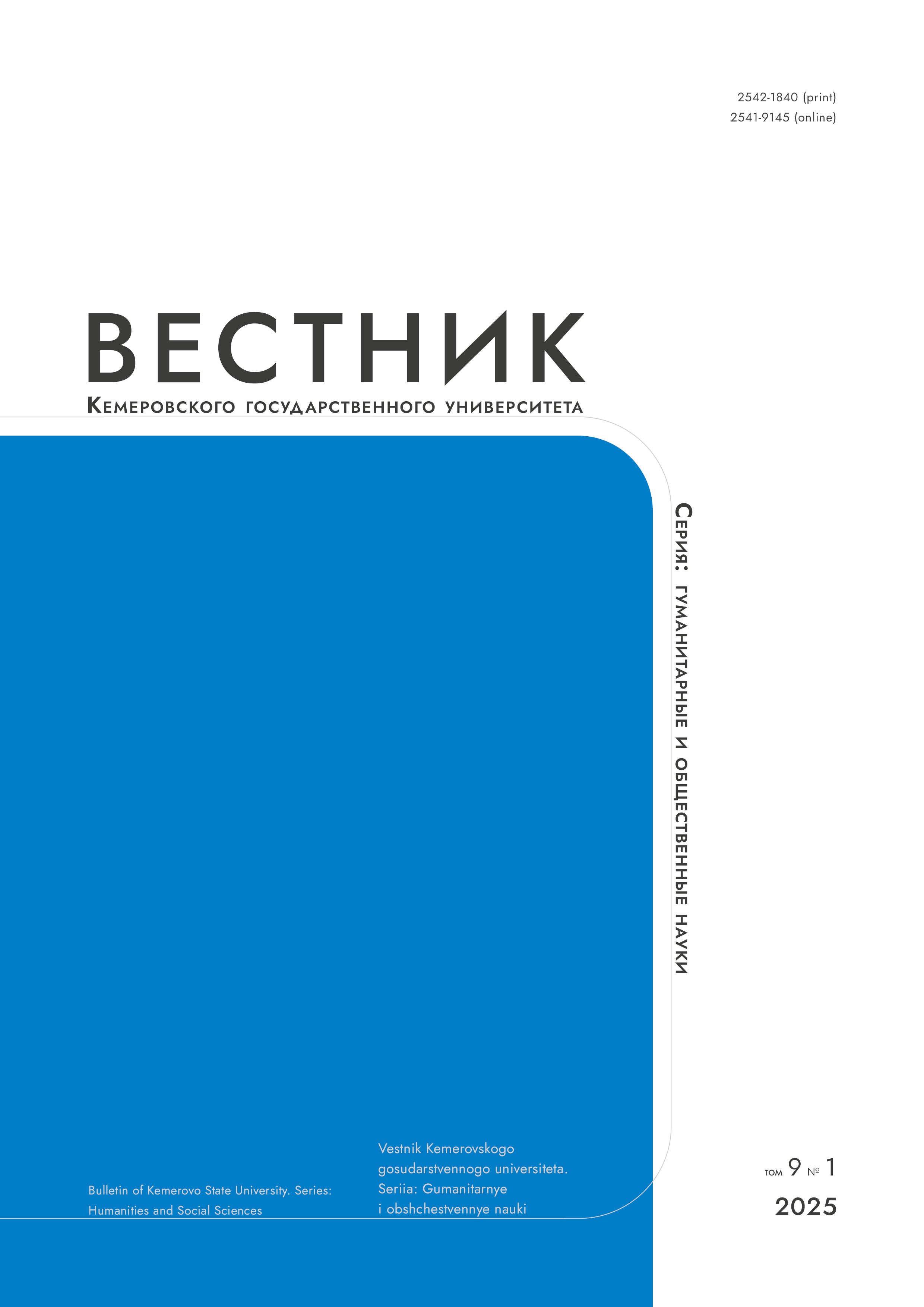Moskva, Russian Federation
UDC 10
New humanities, e.g. sociobiology, human ethology, evolutionary anthropology, etc., have delivered a lot of new knowledge. As a result, scientists have to update some old traditional concepts. The research objective was to examine the phenomenon of solidarity in the context of new approaches. The author compared the biological and anthropological characteristics of this phenomenon and defined it via specifically social forms of human interaction and historical cases. The connectivity of biological communities and the solidarity of human associations revealed some similarities and differences. Human abilities for self-restraint and discipline are consequence of the conscious nature of solidarity. Solidarity as a specifically social form of interaction does not result from the psychological characteristics of people. It expresses the ways people interact with each other, according to their number and degree of convergence. The most important psychological sign of the solidarity of natural groups is their organicity, or integrity, as well as the mutual coordination of individual feelings and experiences. Solidarity is the cohesion of human communities, based on historical types of social interaction. The degree of unfavorable environment and the degree of internal coordination of interests and feelings determine the degree of unity of the group. The author identified two main stable forms of solidarity in history – organic and rationalized. The historical dynamics of the division of labor and personalization determine these forms of solidarity. The author also established the following historical forms of organic solidarity: patrimonial, family-clan, egalitarian, class, and chiliastic.
anthropological aspect, socio-historical aspect, connectedness of biological communities, solidarity in society, social interaction, organic solidarity, rationalized solidarity, clan solidarity, family-clan solidarity, egalitarian solidarity, corporate solidarity, chiliastic solidarity
1. Okatov A. V. Problem of social solidarity in classical sociology. Tambov University Review. Series Social Sciences, 2017, 3(1): 57-65. (In Russ.)
2. Popkova T. V. Solidarity and solidarism as a social and research problem. Novye issledovaniia Tuvy, 2013, (1): 39-48. (In Russ.)
3. Kropotkin P. A. Mutual assistance as a factor in evolution. Moscow: Samoobrazovanie, 2011, 256. (In Russ.)
4. Durkheim E. On the division of social labor. The method of sociology. Moscow: Nauka, 1991, 575. (In Russ.)
5. Senderov V. Solidarity - the third way of Europe? EON. Almanakh staroi i novoi kultury, 2018, (XIII): 130-150. (In Russ.)
6. Wilson E. Sociobiology: the new synthesis. Cambridge, MA: Harvard University Press, 1975, 697.
7. Eibl-Eibesfeldt I. Human ethology. N. Y.: Aldine de Gruyter, 1989, 848.
8. Bribiescas R. G. Men: Evolutionary and Life History. Cambridge, Mass: Harvard University Press, 2006, 320.
9. Markov A., Naimark E. Evolution. Classic Ideas in the Light of New Discoveries. Moscow: AST: CORPUS, 2014, 656. (In Russ.)
10. Palmer J., Palmer L. The ultimate origins of human behavior. St. Petersburg: Praim-EVROZNAK, 2003, 384. (In Russ.)
11. Reznikova Zh. I. Evolutionary and behavioural aspects of social life in animals. Informatsionnyi vestnik VOGiS, 2007, 11(2): 290-306. (In Russ.)
12. Kropotkin P. A. Mutual assistance among animals and people. Minsk: Belaruskaia Entsyklapedyia, 2006, 314. (In Russ.)
13. Ethnic conflict and indoctrination: altruism and identity in evolutionary perspectives, eds. Eibl-Eibesfeldt I., Salter F. K. Berghahn Books, 2001, 512.
14. Simonova O. A. Summary of the article: Komter A. The evolutionary origins of human generosity. In: International sociology. Cardiff, 2010, 25(3): 443-464. Social solidarity and altruism: Sociological tradition and modern interdisciplinary research, ed. Efremenko D. V. Moscow: INION RAN, 2014, 267-279. (In Russ.)
15. Darwin Ch. On the expression of emotions in humans and animals. St. Petersburg: Piter; 2001, 384. (In Russ.)
16. Laverycheva I. G. Biosocial theory of altruism and egoism. St. Petersburg: Nestor, 2007, 124. (In Russ.)
17. Abramova A. V. Genetics and morality: on determinism of moral behavior. Izvestiia Tulskogo gosudarstvennogo universiteta. Gumanitarnye nauki, 2019, (1): 115-121. (In Russ.)
18. Semenov Yu. I. On primitive communism, Marxism and human essence. Etnograficheskoe obozrenie, 1992, (3): 31-46. (In Russ.)
19. Mannheim K. The diagnosis of our time. Moscow: Iurist, 1994, 704. (In Russ.)
20. Filippov A. F. Mobility and solidarity. Paper 2. Russian Sociological Review, 2012, 11(1): 19-39. (In Russ.)
21. Gofman A. B. Solidarity or rules, Durkheim or Hayek? About two forms of social integration. Sociological Yearbook 2012, eds. Pokrovskii N. E., Efremenko D. V. Moscow: INION RAN, 2013, 96-167. (In Russ.)
22. North D., Wallis D., Weingast B. Violence and social order: a conceptual framework for interpreting the written history of mankind. Moscow: Izd-vo Instituta Gaidara, 2011, 480. (In Russ.)
23. Rumyantseva N. L. Historical evolution of individualism and collectivism as base values of the person and society. Historical and Social-Pedagogical Studies, 2012, (1): 219-223. (In Russ.)
24. Social solidarity and altruism: Sociological tradition and modern interdisciplinary research, ed. Efremenko D. V. Moscow: INION RAN, 2014, 284. (In Russ.)
25. Solidarity and conflicts in modern society: XII Kovalevsky Readings, ed. Asochakov Yu. V., St. Petersburg, November 15-17, 2018. St. Petersburg: Skifiia-print, 2018, 600. (In Russ.)
26. Nartova-Bochaver S. K., Bochaver K. A., Bochaver S. Yu. Family living space: unification and separation. Moscow: Genezis, 2011, 320. (In Russ.)
27. Krasikov V. I. Alone or Together? Kemerovo: Kuzbassvuzizdat, 1993, 88. (In Russ.)
28. Vasiliev L. S. Problems of the Genesis of Chinese Thought. The formation of the foundations of worldview and mentality. Moscow: Nauka, 1989, 329. (In Russ.)
29. Surikov I. E. Antique Greece. Vol. 2: Politogenesis, political and legal institutions. Moscow: IaSK, 2018, 758. (In Russ.)
30. Gurevich A. Ya. Selected Works. The Medieval world. Moscow: Tsentr gumanitarnykh initsiativ, 2018, 560. (In Russ.)
31. Lebskiy A. V. Values of collectivism and the problem of identity in modern societies. University news. North-Caucasian region. Social sciences series, 2015, (1): 7-23. (In Russ.)
32. Mannheim K. Ideology and utopia. Sociology of Power, 2010, (3): 235-250. (In Russ.)


















